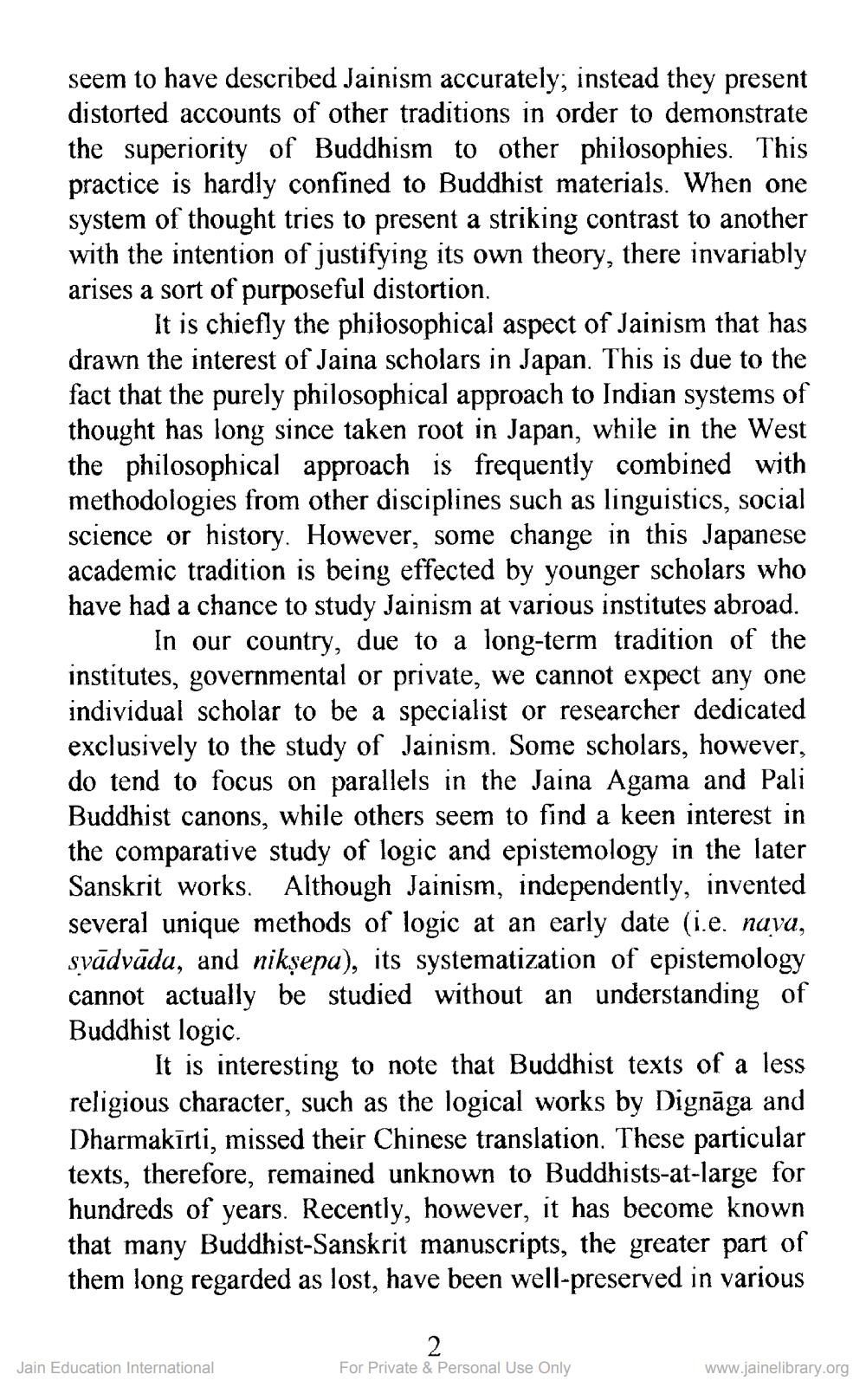Book Title: Jinamanjari 1996 09 No 14 Author(s): Jinamanjari Publisher: Canada Bramhi Jain Society Publication View full book textPage 5
________________ seem to have described Jainism accurately; instead they present distorted accounts of other traditions in order to demonstrate the superiority of Buddhism to other philosophies. This practice is hardly confined to Buddhist materials. When one system of thought tries to present a striking contrast to another with the intention of justifying its own theory, there invariably arises a sort of purposeful distortion. It is chiefly the philosophical aspect of Jainism that has drawn the interest of Jaina scholars in Japan. This is due to the fact that the purely philosophical approach to Indian systems of thought has long since taken root in Japan, while in the West the philosophical approach is frequently combined with methodologies from other disciplines such as linguistics, social science or history. However, some change in this Japanese academic tradition is being effected by younger scholars who have had a chance to study Jainism at various institutes abroad. In our country, due to a long-term tradition of the institutes, governmental or private, we cannot expect any one individual scholar to be a specialist or researcher dedicated exclusively to the study of Jainism. Some scholars, however, do tend to focus on parallels in the Jaina Agama and Pali Buddhist canons, while others seem to find a keen interest in the comparative study of logic and epistemology in the later Sanskrit works. Although Jainism, independently, invented several unique methods of logic at an early date (i.e. nuva, svādvādu, and niksepa), its systematization of epistemology cannot actually be studied without an understanding of Buddhist logic. It is interesting to note that Buddhist texts of a less religious character, such as the logical works by Dignāga and Dharmakīrti, missed their Chinese translation. These particular texts, therefore, remained unknown to Buddhists-at-large for hundreds of years. Recently, however, it has become known that many Buddhist-Sanskrit manuscripts, the greater part of them long regarded as lost, have been well-preserved in various Jain Education International For Private & Personal Use Only www.jainelibrary.orgPage Navigation
1 ... 3 4 5 6 7 8 9 10 11 12 13 14 15 16 17 18 19 20 21 22 23 24 25 26 27 28 29 30 31 32 33 34 35 36 37 38 39 40 41 42 43 44 45 46 47 48 49 50 51 52 ... 92
